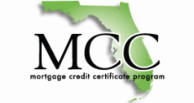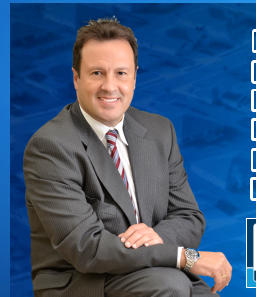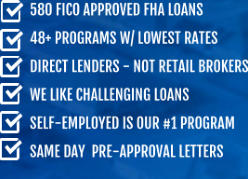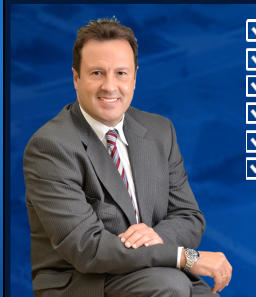


















REVERSE MORTGAGE LOAN

How Do We Qualify For Extra Money by using a
Reverse Mortgage Loan
Homeowners over 62 can use the Cash Proceeds
from a reverse mortgage for:
Paying off or Consolidating Debt Everyday Expenses and Emergencies Replacing Job Income While in Retirement Providing Family Members Financial Help Funding Home Improvements Purchasing a Second Home or Investment Property Offsetting Medical and Prescription Drug Costs
How much you can you receive? Submit the form below to find out?



What Is a Reverse Mortgage Loan?
Asset depletion is a calculation of a borrower's liquid assets to determine a qualifying monthly income to service the loan amount. Liquid assets generally include checking, savings, 401k, pensions, stocks and other investments etc. that could easily liquidated or turned into cash. At that time, the estate has approximately 6 months to repay the balance of the reverse mortgage or sell the home to pay off the balance. All remaining equity is inherited by the estate. The estate is not personally liable if the home sells for less than the balance of the reverse mortgage. Eligibility To be eligible for a Reverse Mortgage Loan, the Federal Housing Administration (FHA) requires that the youngest borrower on title is at least age 62. If the home is not owned free and clear, then any existing mortgage must be paid off using the proceeds from the reverse mortgage loan at the closing. In addition, you must meet financial eligibility criteria as established by HUD. Is there a Repayment Due Date? A reverse mortgage typically does not become due if you meet the loan obligations. For example, you must live in the home as your primary residence, continue to pay required property taxes, homeowners insurance and maintain the home according to Federal Housing Administration requirements. Failure to meet these requirements can trigger a loan default that may result in foreclosure. Inheritance In the event of death or if the home ceases to be the primary residence for more than 12 months, the homeowner’s estate can choose to repay the reverse mortgage or put the home up for sale. If the equity in the home is higher than the balance of the loan, the remaining equity belongs to the estate. If the sale of the home is not enough to pay off the reverse mortgage, the lender (not the borrower) must take a loss and request reimbursement from the FHA. No other assets are affected by a reverse mortgage. For example, investments, second homes, cars, and other valuable possessions cannot be taken from the estate to pay off the reverse mortgage. • Loan Limits • The available loan amount depends on four factors: • The age of the youngest borrower • Current interest rate • Appraised value of the home • Government-imposed lending limits. Distribution of funds There are several ways to receive the proceeds from a reverse mortgage loan: • Lump sum – a lump sum of cash at closing. (only available for fixed-rate loans) • Tenure – equal monthly payments as long as the homeowner lives in the home. • Term – equal monthly payments for a fixed period of time. • Line of Credit – draw any amount at any time until the line of credit is exhausted. • Any combination of those listed above REVERSE MORTGAGE MYTHS — AND THE TRUTH Misconceptions about reverse mortgages may cause homeowners to avoid consideration of these complex loans. Or, eligible seniors might proceed too hastily without realizing all the possible repercussions of their financial decisions. Here are a few wrong ideas and realities about this option. Myth: The lender takes title to the home. Truth: You still retain ownership of your home. The reverse mortgage is only a lien against the property. Myth: The loan can exceed the value of the property, sticking you or your heirs with a large bill when you eventually leave your home. Truth: A reverse mortgage is a “non-recourse” loan, which means that you, your heirs, or your estate will never owe more than the appraised value of the home at loan maturity. Myth: You can’t get a reverse mortgage if you currently have a conventional mortgage. Truth: Although this is true, you can get a reverse if you use the proceeds to pay off your existing mortgage at close. Myth: A reverse mortgage can cause you to be evicted from your home. Truth: You leave your home when you choose. No one will force you from your home. The reverse mortgage is not due until your home is no longer your primary residence.
© 2007 - 2023 1st Florida Lending Corp. - All rights reserved I Privacy Policy I Terms of Use I



- MORTGAGE GLOSSARY OF TERMS
- MORTGAGE CALCULATOR
- LOAN PROGRAMS
- USDA LOAN INFORMATION
- NON-QM MORTGAGE
- PRE-APPROVAL DOCUMENT-CHECKLIST
- APPRAISALS
- LEARN ABOUT CREDIT
- REPAIR YOUR CREDIT
- CLOSING COST
- REFINANCING YOUR LOAN
- MORTGAGE CREDIT EVENTS
- PMI-MORTGAGE INSURANCE
- FORECLOSURE INFORMATION
- CONDO PURCHASE WARNINGS
- THE LOAN PRE-APPROVAL PROCESS


- FHA LOANS - NO DOWN PAYMENT
- BANK STATEMENT LOANS - 90% LTV
- JUMBO LOANS - 95% LTV
- 99% LTV CONVENTIONAL LOAN
- PROGRESSIVE REPAYMENT MORTGAGE
- CONTRUCTION LOANS
- INVESTMENT PROPERTY LOANS - 85% LTV
- STATED MORTGAGE FOR PRIMARY -SECOND HOMES
- NO DOC FUNDING - 6 PROGRAMS
- FOREIGN NATIONAL LOANS
- ASSET BASED MORTGAGE LOAN
- FIX AND FLIP BRIDGE LOANS
- COMMERCIAL PROPERTY LOANS
- VOE MORTGAGE LOANS
- ITIN TAX ID LOAN
- USDA LOAN
- VA LOANS 100% LTV














